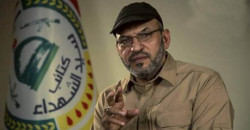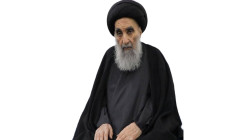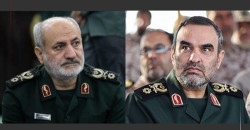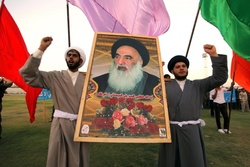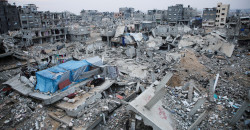Exclusive: Iraqi Factions warn targeting Al-Sistani will spark a war ending in “Israel's demise”
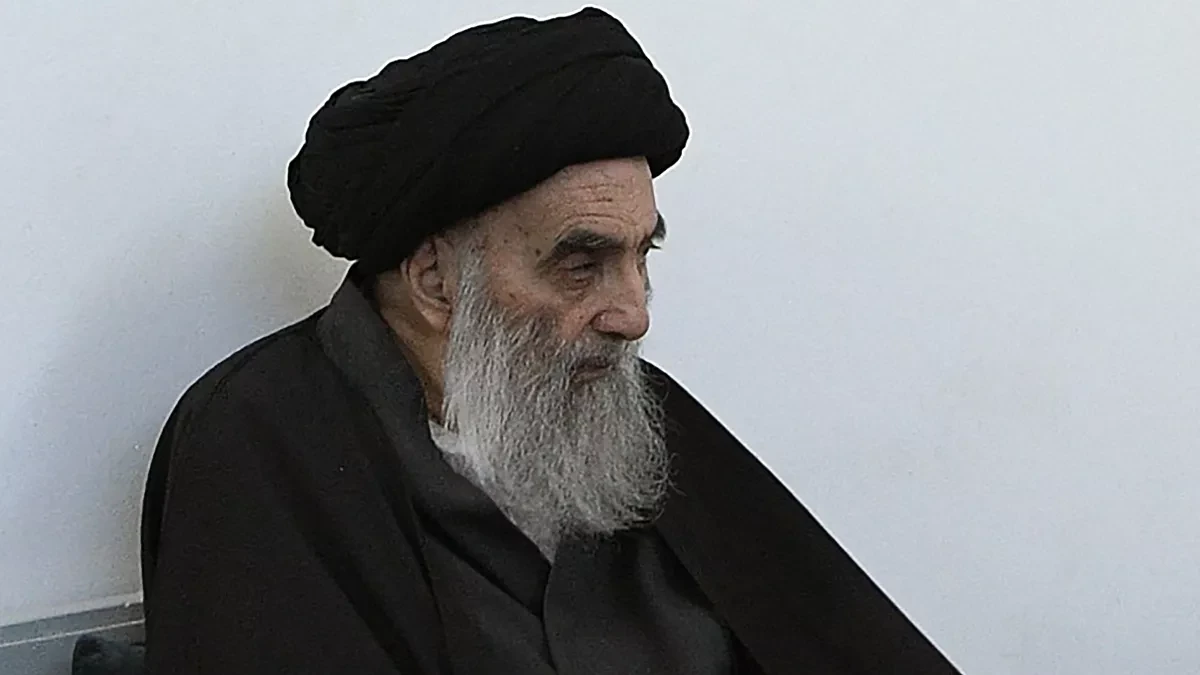
Shafaq News/ The Sayyid al-Shuhada
Brigades, a prominent Iraqi armed faction, responded on Wednesday to Israel's
reported intention to target Iraq’s top religious authority, Ayatollah Ali Al-Sistani,
stating that this authority is "above all red lines."
The brigades' spokesman, Kazem
Al-Fartousi, told Shafaq News Agency, "The Israeli threats and rhetoric appear
random and stem from psychological tactics, including the Zionist regime's intention
to target Al-Sistani,” affirming, “This is an attempt to exert pressure on the
Iraqi people and to intimidate by exaggerating the potential response."
"The religious authority is not
something that can be labeled as a red line; it is above all those lines and
all calculations and designations, and it is the sacred entity that cannot be
touched." He warned, “Any foolish actions taken by the Zionist entity
against the religious authority would lead to a prolonged war that would only
end with the demise of Israel."
Al-Fartousi further explained,
" Iraq has been at war with Israel since 1948, and there is nothing
to end this state of war—no international agreements, no ceasefire, and no UN
resolution. Therefore, Israel will not stop targeting Iraq, and Israeli attacks
are recurrent. Thus, we remain in a state of war and do not need to declare war
against this occupying entity.”
On Tuesday, the Israeli right-wing Channel
14 published a photo of Al-Sistani, as part of a list of potential
assassination targets.
Al-Sistani's photo appeared
alongside regional leaders such as Houthi leader Abdul Malik al-Houthi,
Hezbollah's Deputy Secretary-General Naim Qassem, Hamas's political bureau
chief Yahya Sinwar, Iran's Quds Force commander Esmail Qaani, and Iran's
Supreme Leader Ali Khamenei.
In the context of the Israeli
correspondent's discussion about Israel's potential response to the recent
Iranian missile attack, a “target” label was placed on their heads without
explaining the reasons for including Al-Sistani, which sparked angry reactions
in Iraq.
These
developments come amid a wave of assassinations by Israel, with the most prominent
being the killing of Hezbollah's Secretary-General, Hassan Nasrallah, in an Israeli
airstrike that targeted Beirut's southern suburbs.

